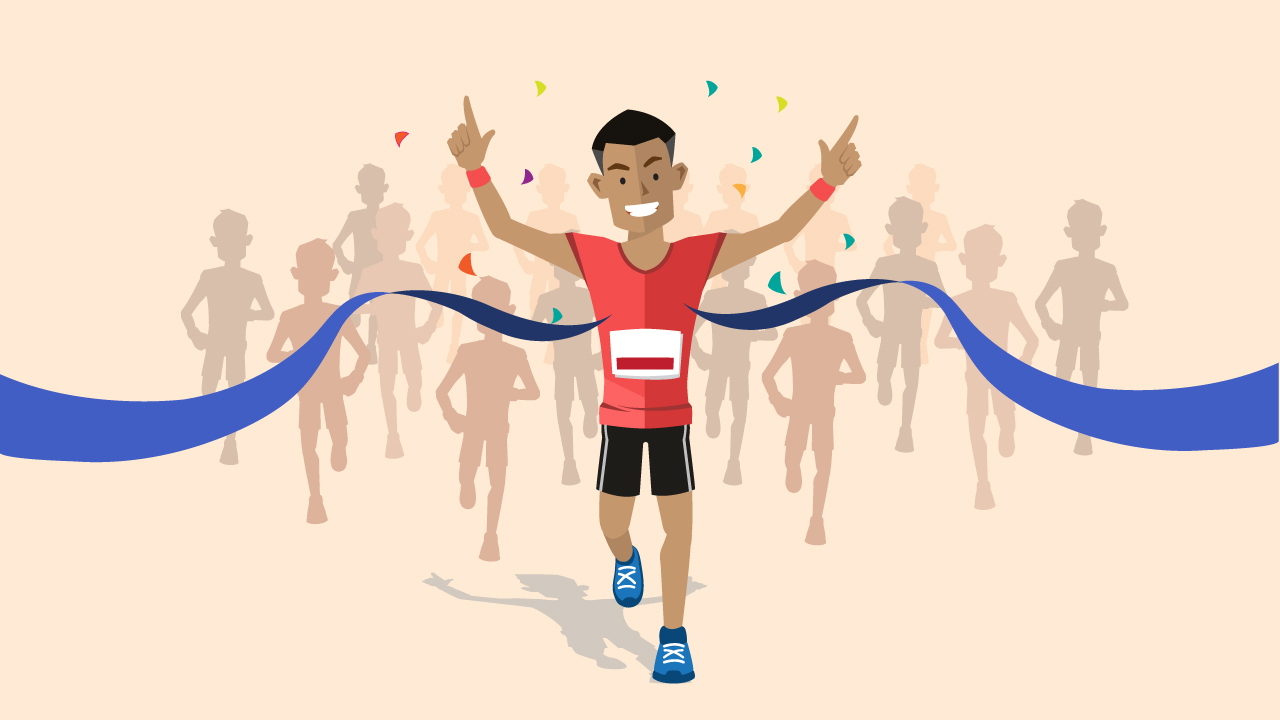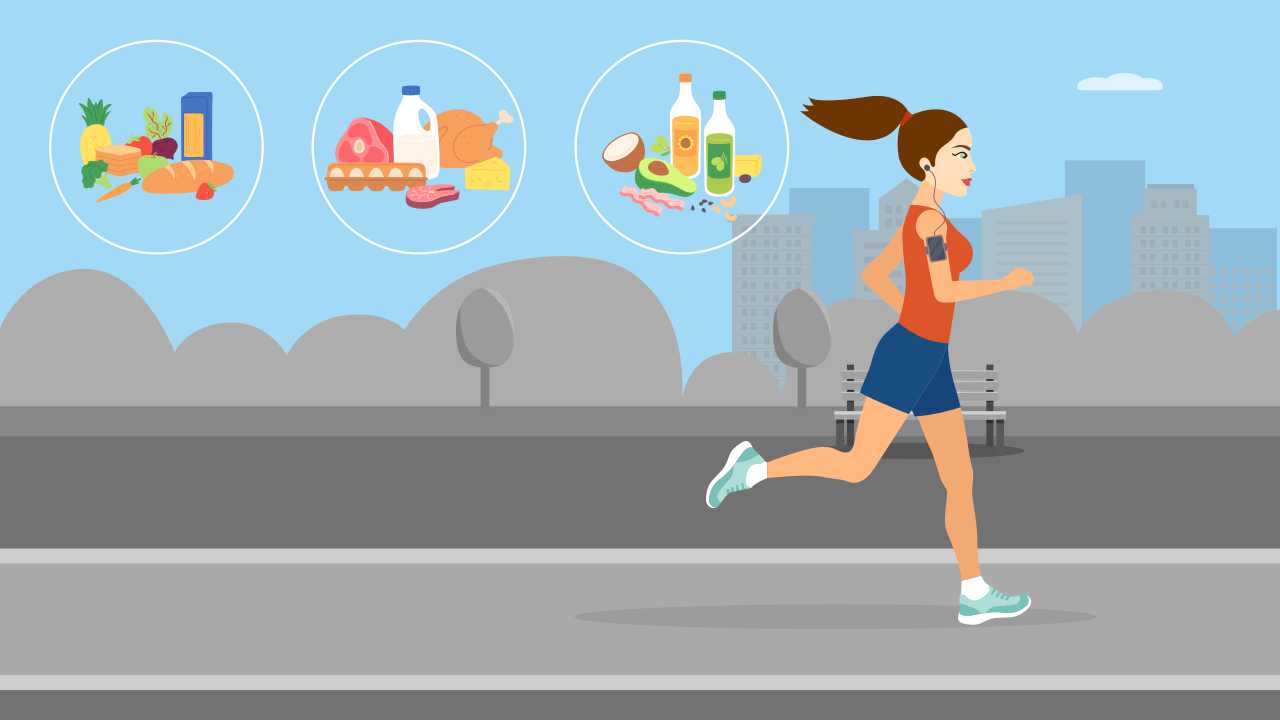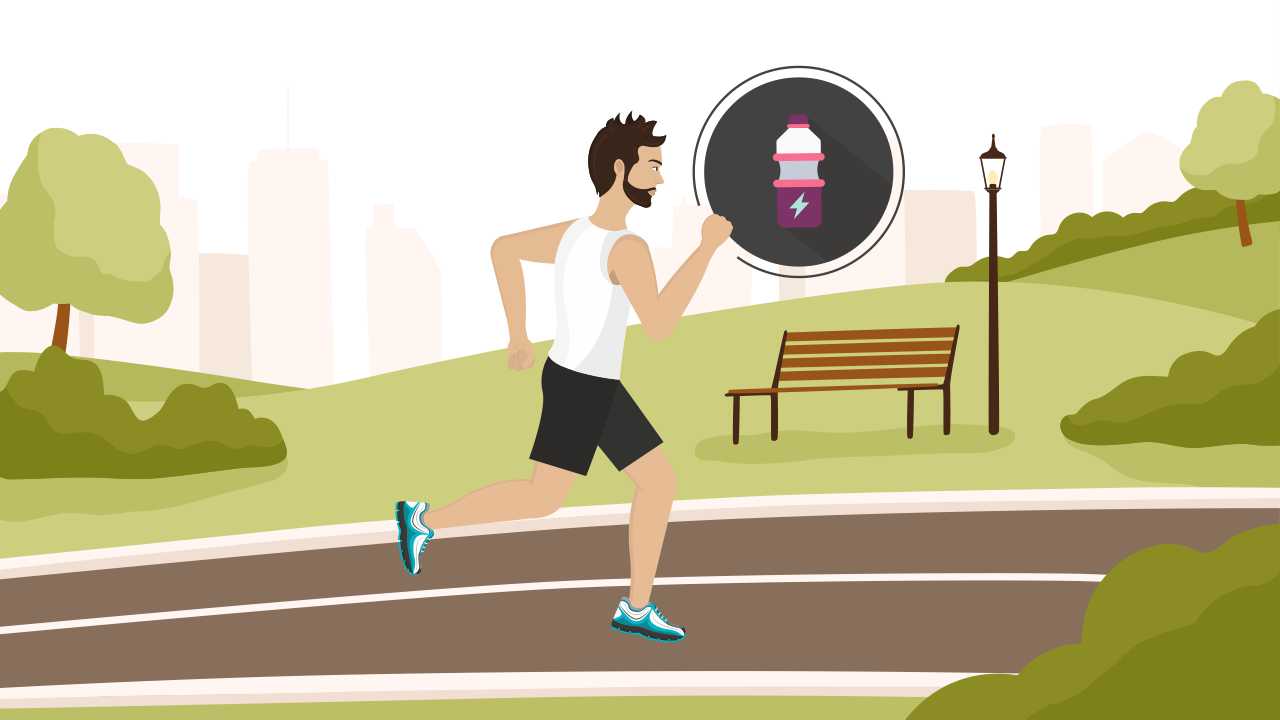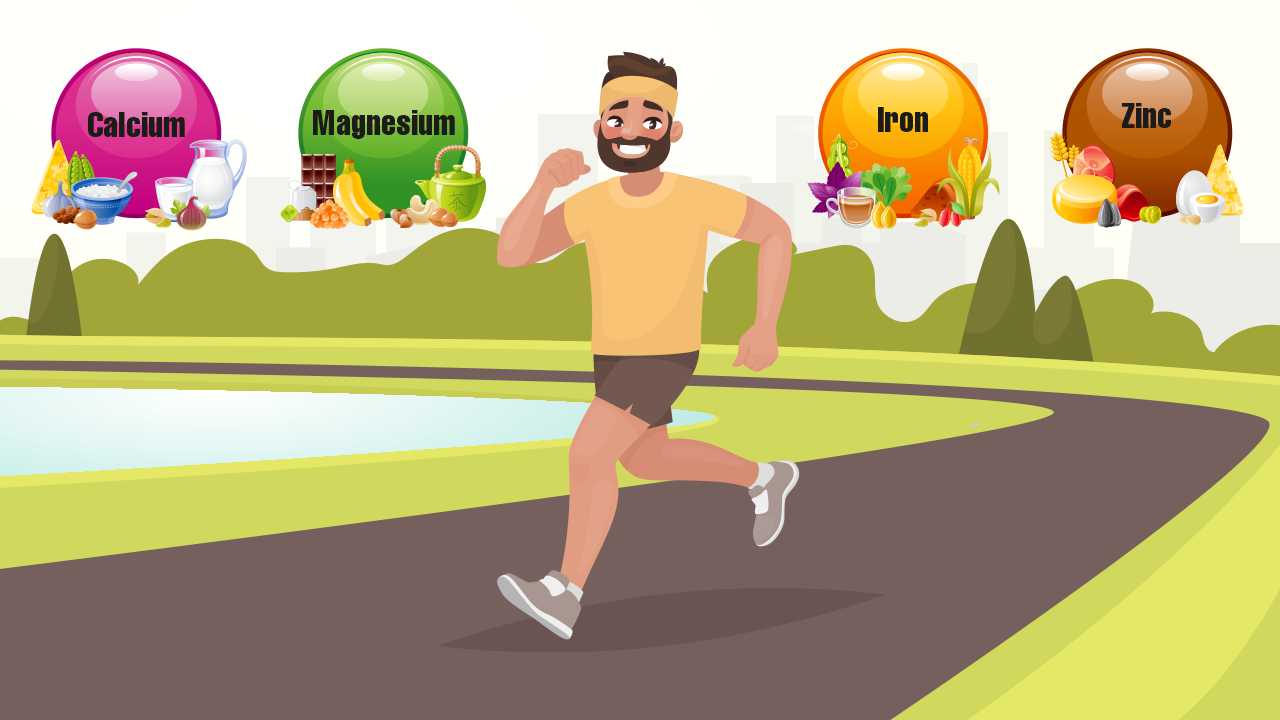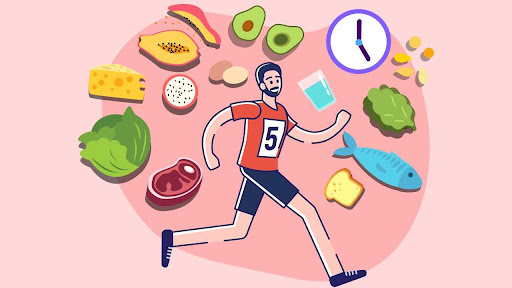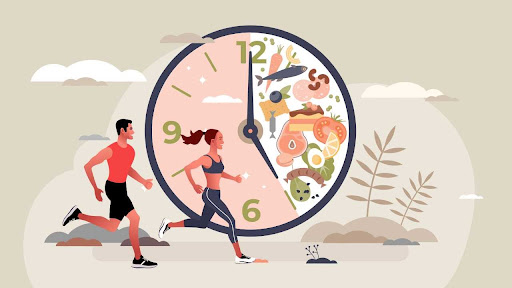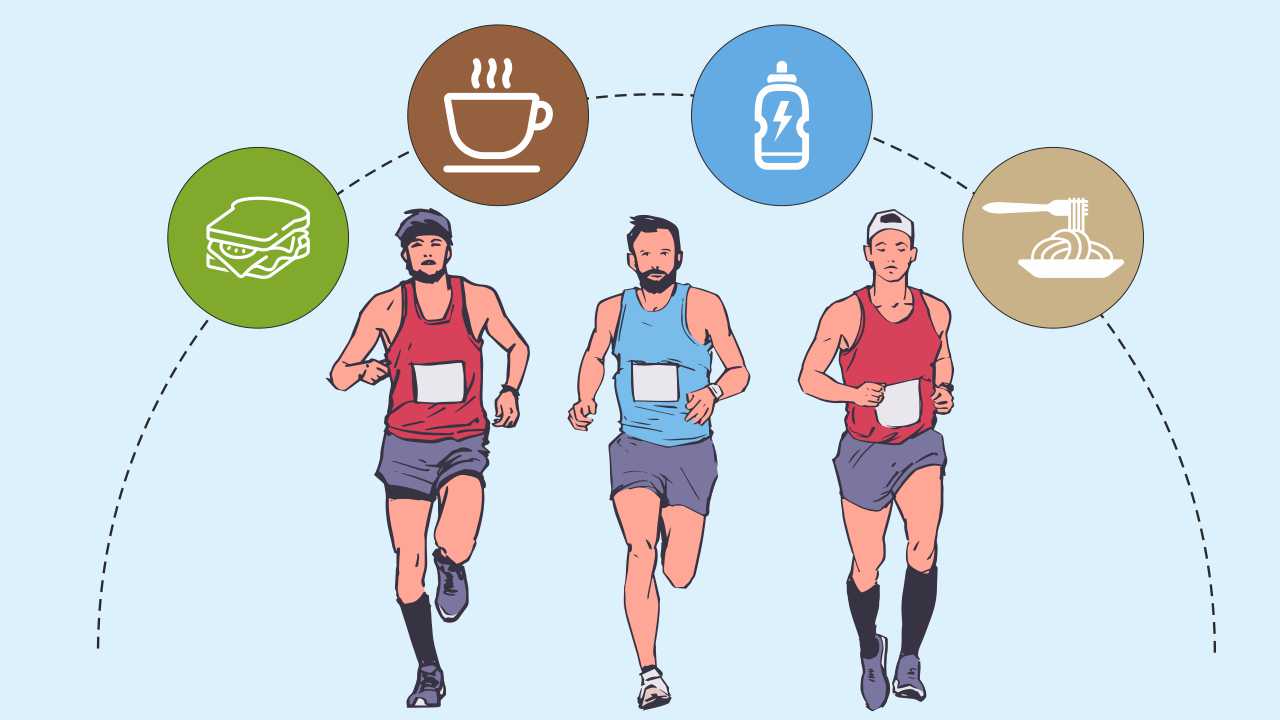
Why Is Calcium So Important for Runners?
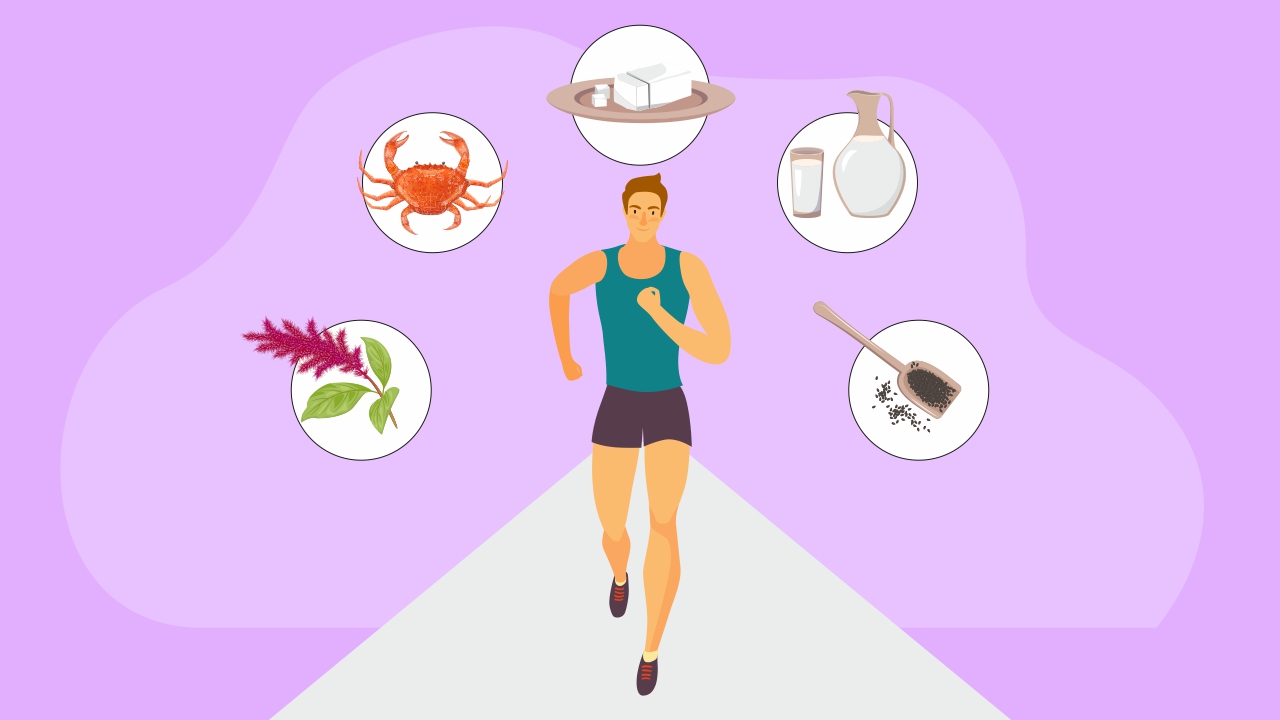
Everyone knows calcium is important for bone health, but its significance is substantially more for runners. Running 30, 40, or more kilometers per week puts a lot of stress on the bones, increasing the risk of running injuries. With 99% of calcium being stored in the bones, this excessive wear-and-tear from exercises causes an increased loss of calcium.
Additionally, with many runners emphasizing on being lean, there is a high prevalence of under-fueling and amenorrhea, which is a loss of menses in females, further decreasing bone mineral density. In fact, most bone-related injuries in runners occur due to inadequate calorie intake, even in the presence of adequate calcium. However, increasing the consumption of calcium will mitigate this injury risk.
In cases of low body weight and/or under-fueling, calcium needs increase even more — from 900mg to 1300mg per day. Whole foods like dairy, almonds, and tofu provide a lot of calcium. However, quite often, it may not be enough if you are a runner. It is advisable to add a calcium and vitamin D supplement to your regimen to help reduce the risk of stress fractures. Vitamin D helps transport calcium into the bones. You’d need oral calcium supplements with a content of least 600mg and vitamin D supplements with a minimum of 1000IU. Consult with your doctor or dietitian before starting a new supplement, as it may not always be necessary, or your dosage needs may be higher.
However, remember that supplements alone do not make you a great athlete, and calcium is no exception. While getting an adequate supply of calcium for bone health will help your recovery and performance, especially compared to those who are deficient, under-consuming calories and carbs along with other key nutrients will mitigate any performance benefits from supplementation. Therefore, make it a point to follow a food-first approach.
Here are some foods that can provide you with the much needed calcium from your daily diet.
| Source | Serving size (g) | Amount (mg/serving size*) | % Daily requirement for adults |
| Poppy seeds | 5 | 68.6 | 7 |
| Gingelly seeds, white | 5 | 64.15 | 6.4 |
| Omum (ajwain) | 5 | 51.7 | 5.1 |
| Agathi leaves | 100 | 901 | 90.1 |
| Khoa | 50 | 301 | 30.1 |
| Paneer | 50 | 238 | 24 |
| Amaranth spinosus, leaves, red and green | 100 | 372 | 37.2 |
| Knol-Khol, leaves | 100 | 368 | 37 |
| Ragi | 25 | 91 | 9.1 |
| Crab, sea | 50 | 166.5 | 17 |
| Milk | 100 | 120 | 12 |
RDA of calcium = 1000mg
Over time, running makes your bones stronger. It is similar to weight-lifting. When you lift weights, your body breaks down the muscle. Eventually, that muscle grows stronger. If your goal is muscle growth, you focus on consuming protein. In the same manner, you need to fulfill your calcium requirements daily to amplify bone growth and enhance running performance. However, constant under-fueling teamed with low calcium intake will have the opposite effect, leading to more pain and slower runs.
Calcium deficiency: Diagnosis and symptoms
Unfortunately, it is very difficult to detect calcium deficiency at an early stage. A blood test and an X-ray are two clinical markers that can help you in the diagnosis. However, since most calcium is located in the bones, the body will pull from those stores to regulate serum calcium levels. So, it will not show in a blood test until it is severe. Likewise, an X-ray can depict early signs of osteoporosis and weak bones, but this is only after a serious, long-term deficiency.
Furthermore, the initial symptoms of calcium deficiency are similar to other deficiencies and seem so common in runners that they often get ignored. Muscle spasms and stress fractures are the two most common indications of calcium deficiency
Any runner experiencing these signs should immediately see a doctor. Also, following a proper calorie-balanced diet with adequate calcium is the best way to prevent injury-causing deficiencies.
When do you take calcium and iron supplements?
If you are taking an iron supplement, ensure to consume it at least two hours before or after a high dose of calcium. Both of these minerals use the same binding site in the cell, with calcium being the stronger of the two. Taking calcium and iron together can lead to iron deficiency anemia, which is a common issue among runners.
Why you should avoid under-fueling post a workout
As previously mentioned, under-fueling plays a large role in calcium deficiencies. As an athlete, your body is burning more calories even after you finish your run. It is extremely common for runners to have a reduced appetite after finishing their workout. This is caused by changes in hormone levels that suppress your appetite. This is one of the main factors leading to under-fueling and, over time, calcium deficiencies. So, it is recommended to have a post-workout snack, such as a protein smoothie or Greek yogurt with granola if you are not planning to eat a meal relatively soon.
Also read: How to Fuel for Long-distance Runs
Lastly, here is another fun fact! Calcium is the largest micronutrient required by the human body. Maintaining strong bones as a runner is essential to avoid problems like osteoporosis or stress fractures in the future. No one likes being injured. So, include a calcium supplement and more calcium-rich foods in your diet. As always, when in doubt, talk to your doctor or a sports dietitian to ensure that you are fueling yourself properly and consuming enough calcium.
References
1. Williams MH. Dietary supplements and sports performance: minerals. J Int Soc Sports Nutr 2005; 2: 43–9.
2. Saha S, Goswami R, Ramakrishnan L, et al. Vitamin D and calcium supplementation, skeletal muscle strength and serum testosterone in young healthy adult males: Randomized control trial. Clin Endocrinol (Oxf) 2018; 88: 217–26.
3. Vatansever-Ozen S, Tiryaki-Sonmez G, Bugdayci G, et al. The effects of exercise on food intake and hunger: relationship with acylated ghrelin and leptin. J Sports Sci Med 2011; 10: 283–91.

